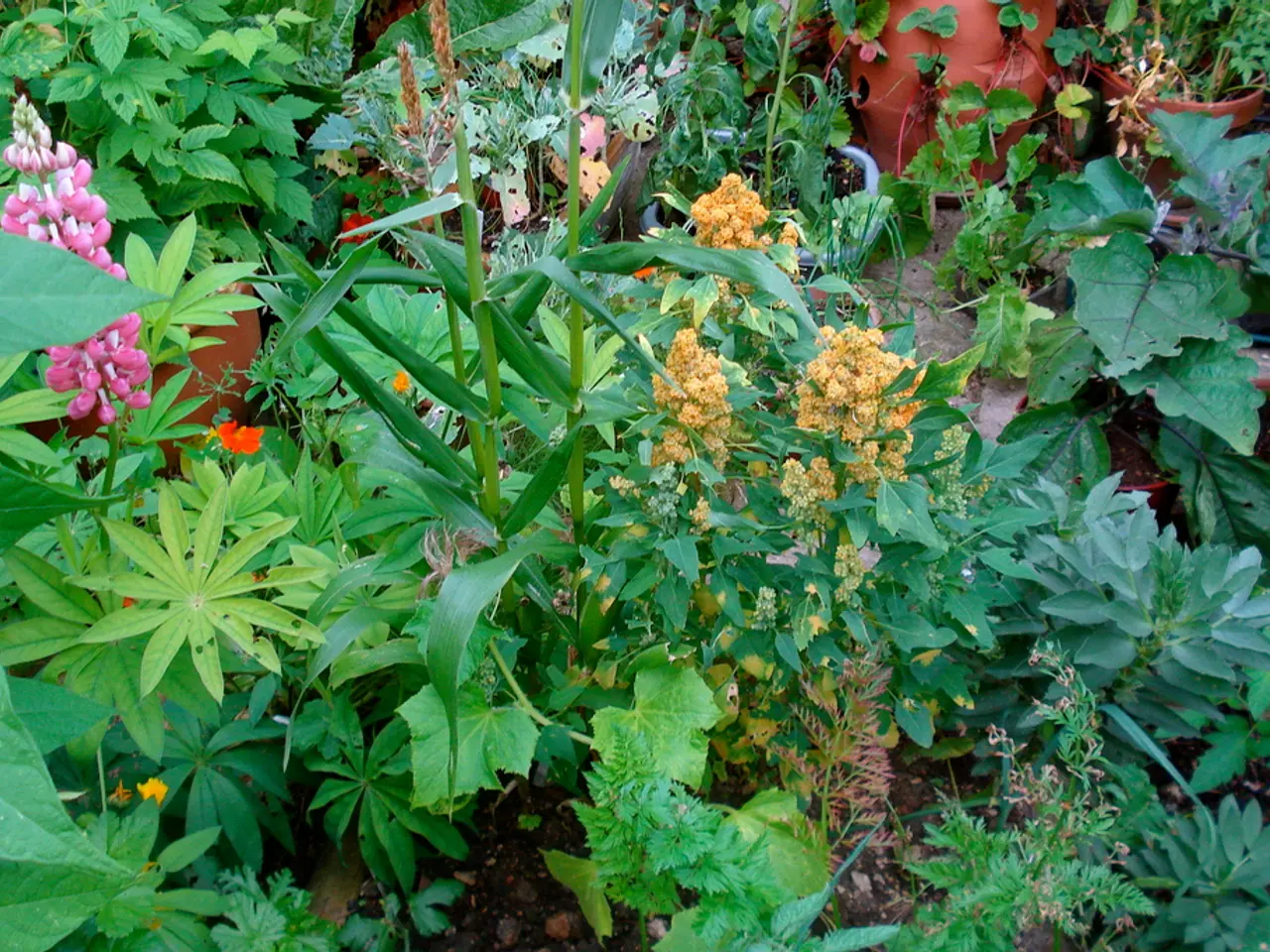Discover French garden designer Gilles Clément
In the world of landscape design, Gilles Clément, an esteemed French gardener and designer, stands out for his innovative philosophy and approach that emphasizes humanist ecology and the concept of the 'Garden in Motion'. Now in his eighties, Clément's work continues to inspire a new generation of designers.
Born in Algeria and raised in the foothills of the Massif Central, Clément's early life experiences would shape his future perspective on gardening. His teenage years saw him avoid chemicals, fertilisers, and pesticides, having witnessed their harmful effects firsthand. This aversion to harmful substances would become a cornerstone of his philosophy.
In 1969, Clément was a conscientious objector to military service and was sent to work in Nicaragua. This experience further broadened his horizons, instilling in him a deep respect for different cultures and ecosystems. A later trip to Bali, Indonesia, significantly influenced his perceptions of habitable spaces and gardening.
Training as a landscape architect in the early 1970s, Clément named his design agency, Acanthe, to honour both architecture and botany. His first major project, La Vallée, was built in 1977 in a valley where he used to chase butterflies. Here, he integrated a fallen tree into the evolving design, while careful horticultural enrichment increased biodiversity.
Clément's philosophy revolves around observing and embracing natural processes. His concept of 'le jardin en mouvement' (the garden in motion) was born from his observation of nature's reclamation of wasteland. This approach is exemplified in his work at the Parc André Citroën in Paris, where colour-themed gardens encourage participation, and at the Domaine du Rayol in the French Riviera, where ecosystems imitated from Mediterranean climate zones around the world are juxtaposed to encourage biological diversity.
Clément's broader vision is encapsulated in the idea of the 'Planetary Garden'. This concept treats the entire Earth as a dynamic, interconnected garden. It emphasizes human responsibility to facilitate natural processes rather than control them, advocating for a harmonious relationship between humans and nature. His approach is deeply rooted in a holistic perspective that integrates ecological, aesthetic, and philosophical considerations. By seeing the garden as part of a larger, interconnected system, Clément's philosophy promotes biodiversity and sustainability.
Moles have become companion gardeners at La Vallée rather than pests, with annuals being sown in their molehills. Wild hornbeams are clipped into smooth domes, and most paths are simply mown grass, their routes changing from year to year to preserve self-seeded clumps of foxglove or verbascum. This minimal intervention approach allows natural forces to shape the garden over time.
Clément's writings about gardens are appreciated by a wide French public and admired by gardeners and designers worldwide. Piet Oudolf, a well-known landscape designer, has praised Clément's approach in his book Nieuwe bloemen, nieuwe Tuinen. As a charismatic teacher and speaker, Clément attracts large crowds of young people to his lectures and workshops.
Throughout his career, Clément has taught at the prestigious Versailles School of Landscape Architecture and created parks all over France. An experimental meadow, begun in 1995, is still one of the garden's most popular features at La Vallée. His colour-themed gardens at the Parc André Citroën in Paris encourage participation, with the Green garden often prompting silence among visitors.
Clément recognizes the importance of being aware of ecosystems in gardening, believing that the gardener can regenerate the conditions that make life flourish. His influence on modern landscape design is significant, encouraging a more naturalistic and sustainable approach to gardening that emphasizes humanist ecology and the 'Garden in Motion'.
- Gilles Clément, a renowned French gardener and designer, advocates for a 'Garden in Motion' philosophy that is rooted in natural processes and humanist ecology.
- Acanthe, Clément's design agency named for both architecture and botany, promotes a minimal intervention approach in gardening, allowing natural forces to shape the garden over time.
- Clément's work, such as the color-themed gardens at the Parc André Citroën in Paris and the Domaine du Rayol in the French Riviera, juxtapose ecosystems to encourage biological diversity and promote biodiversity.
- Moles are considered companion gardeners at La Vallée, where annuals are sown in their molehills, and wild hornbeams are clipped into smooth domes to create a harmonious relationship between humans and nature.
- Clément's influence on modern landscape design is significant, with his holistic perspective integrating ecological, aesthetic, and philosophical considerations, and encouraging a more sustainable gardening lifestyle.




